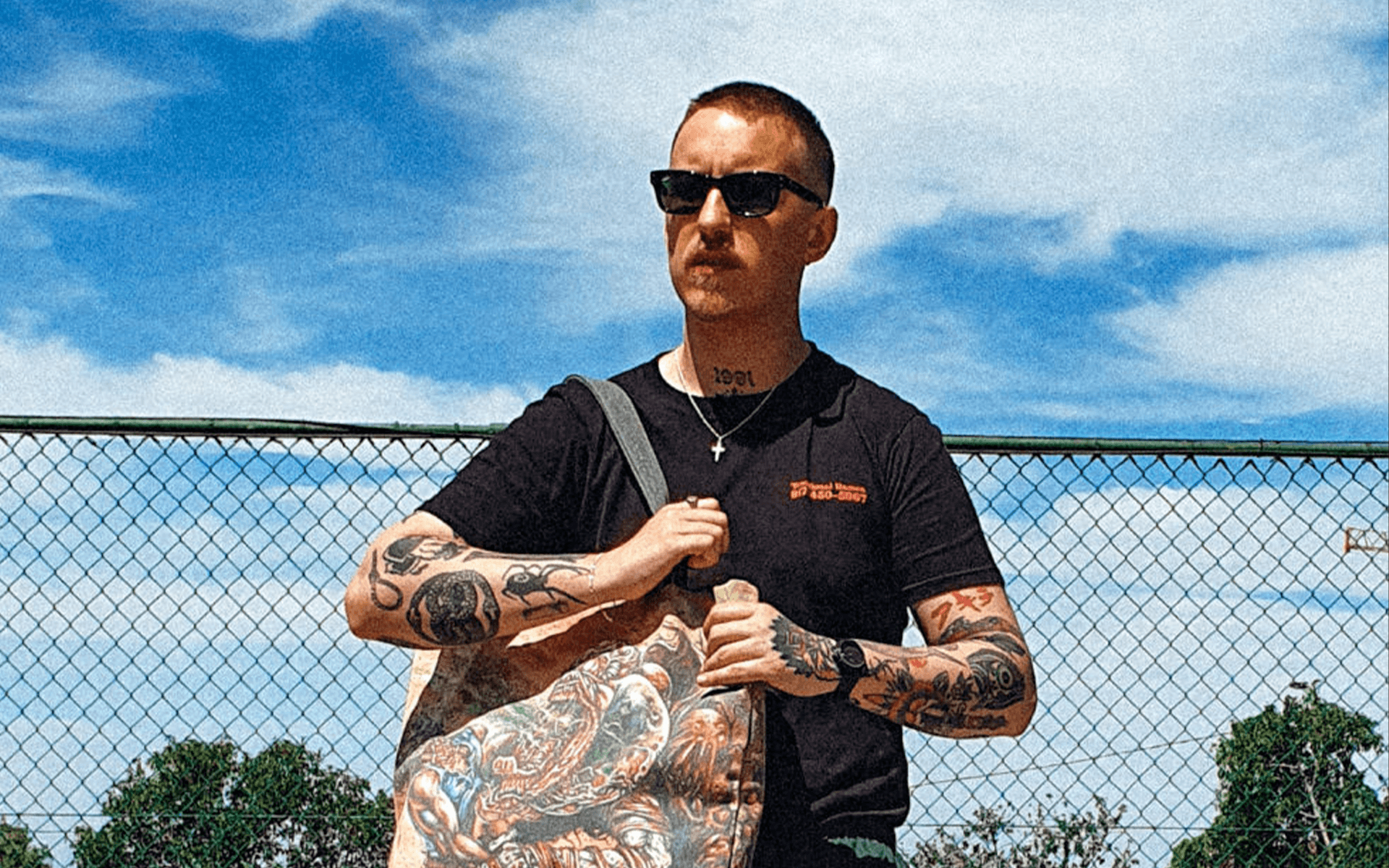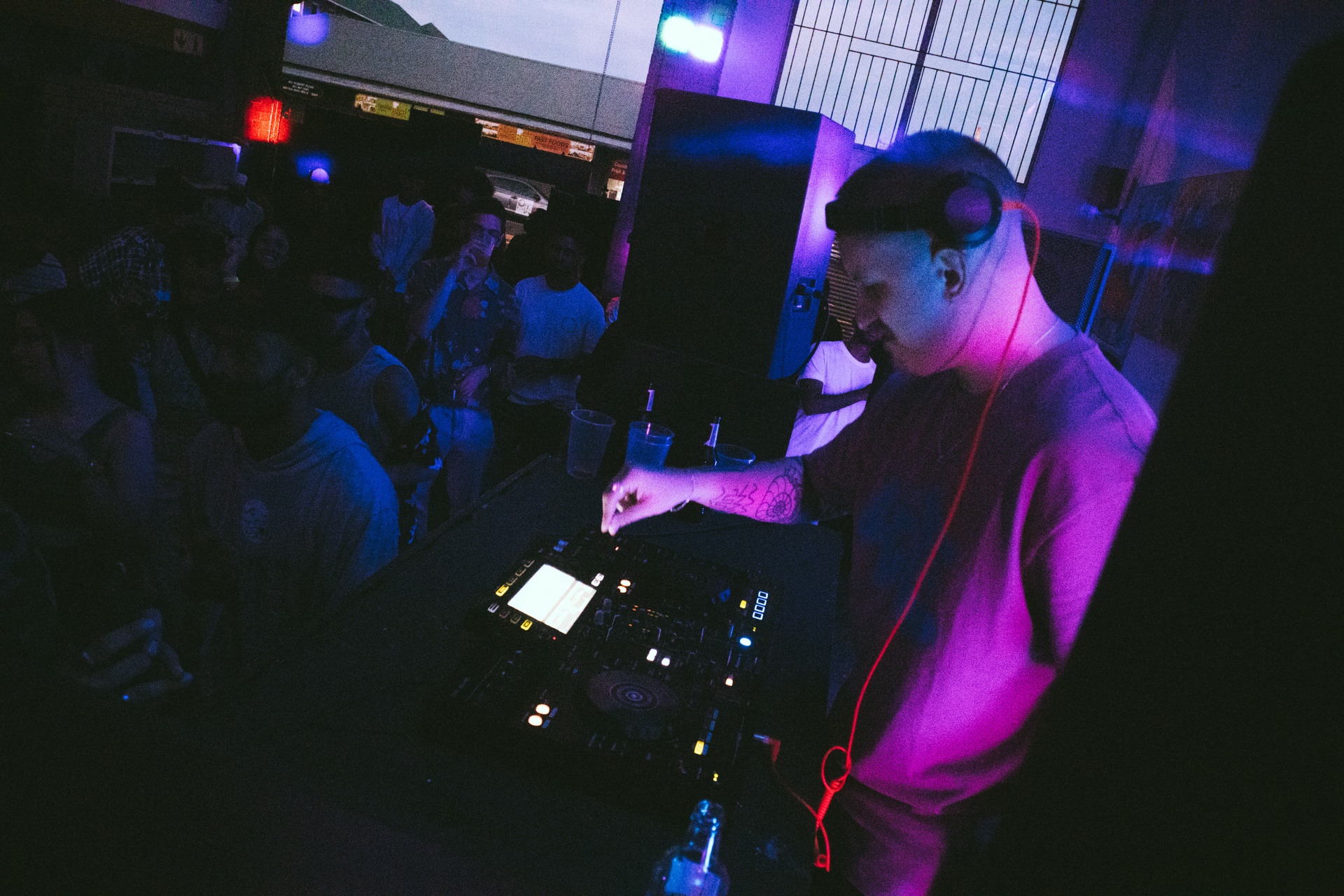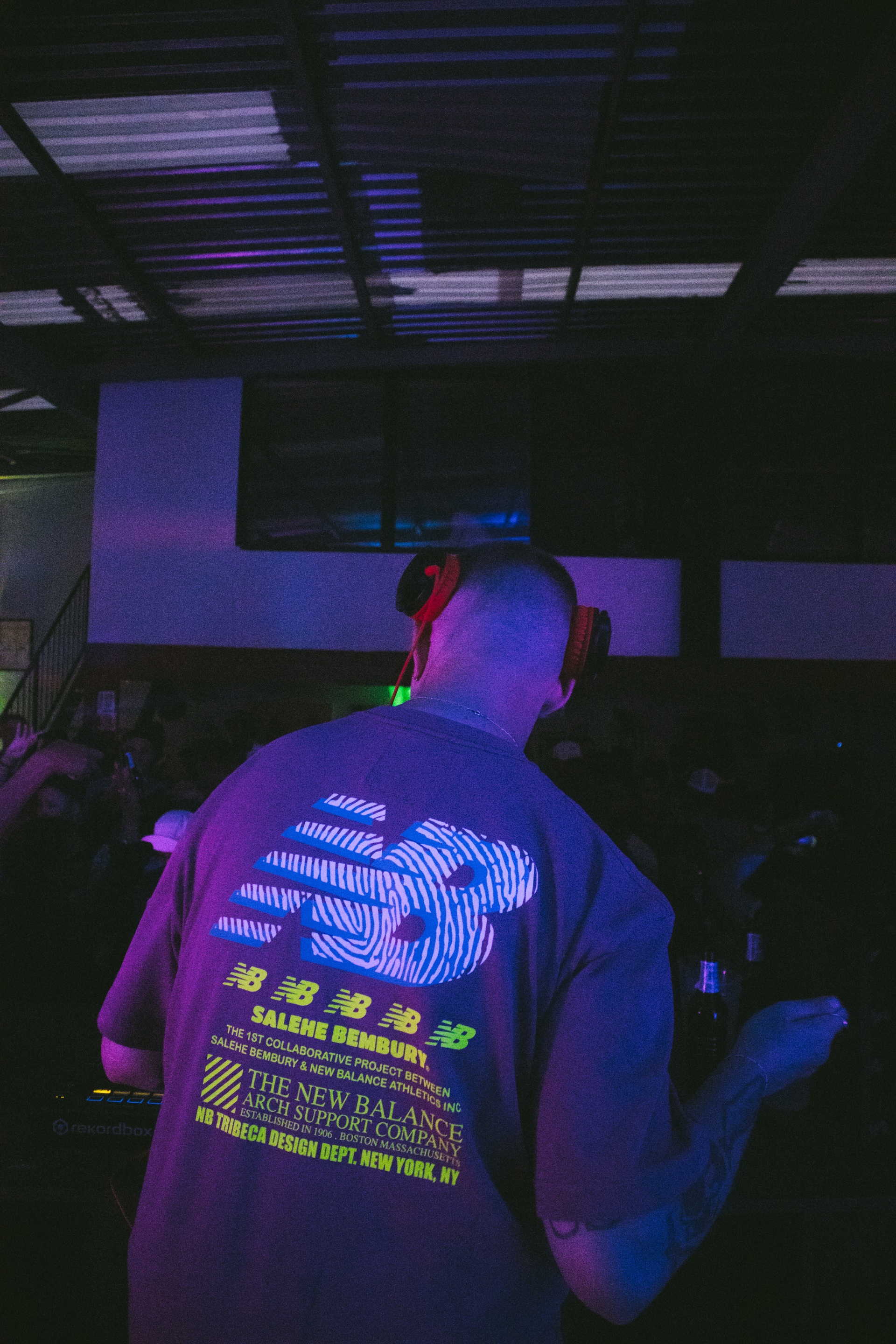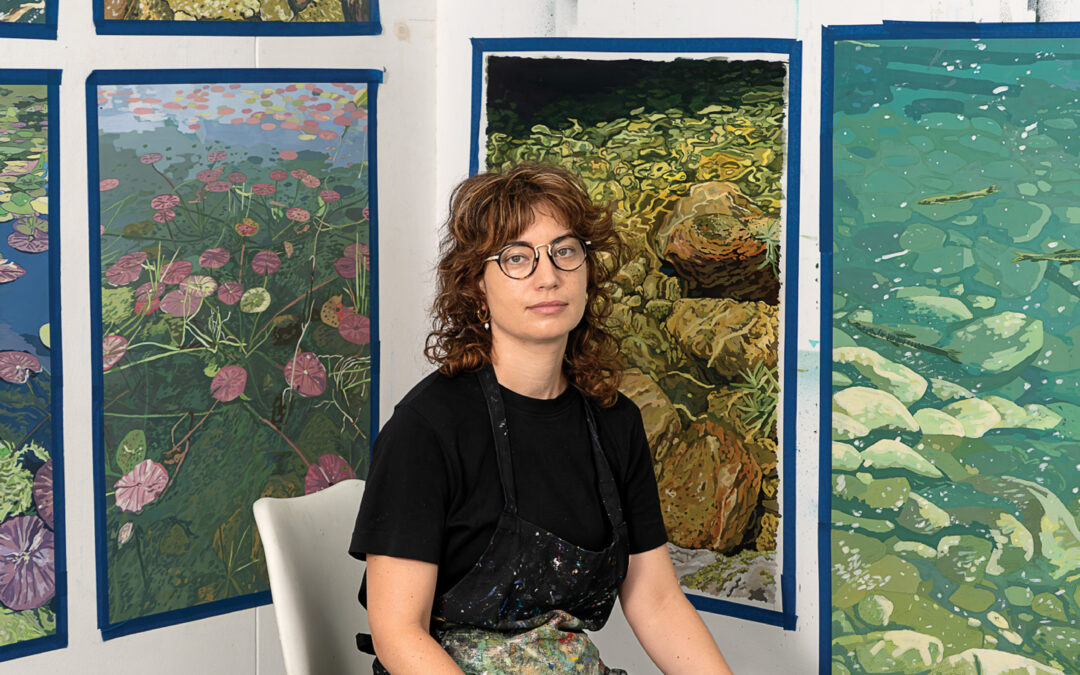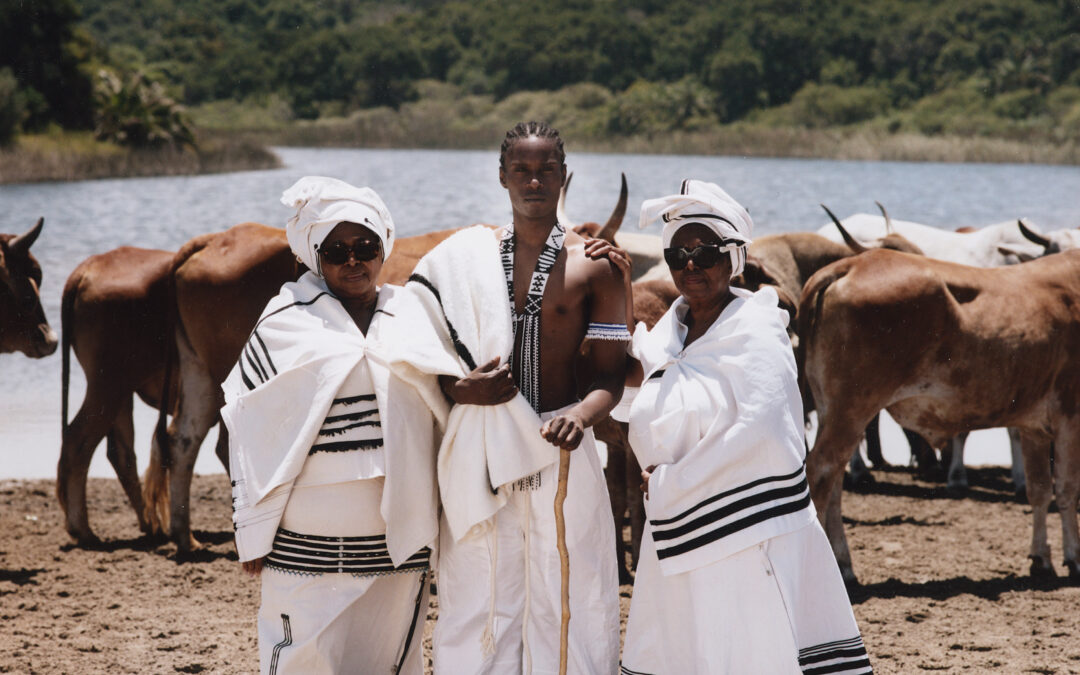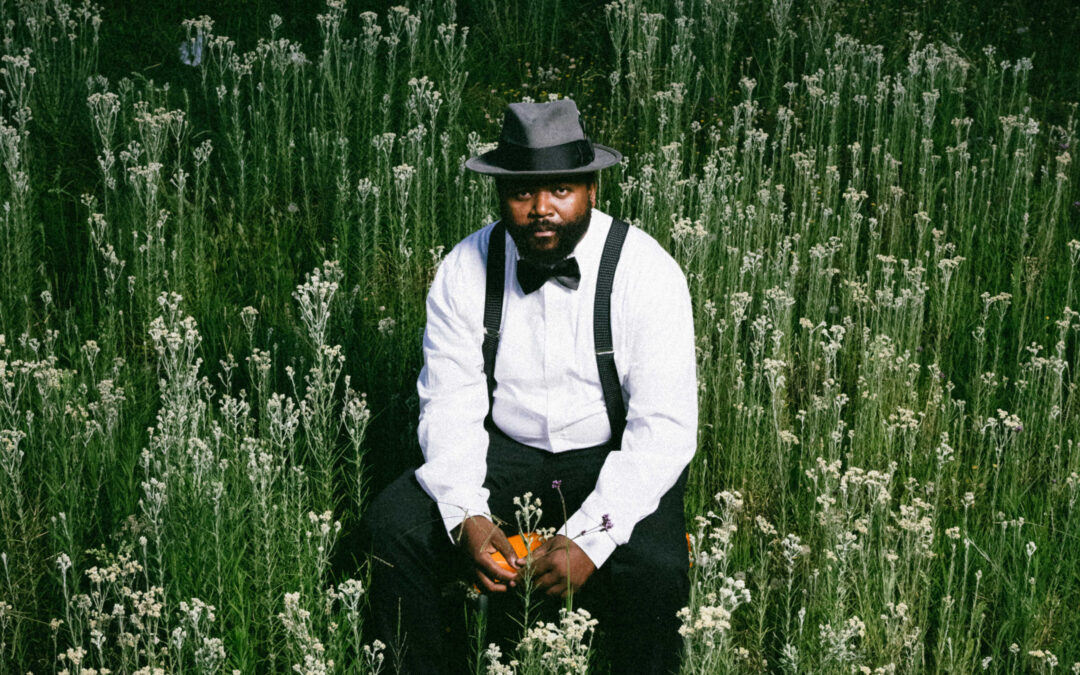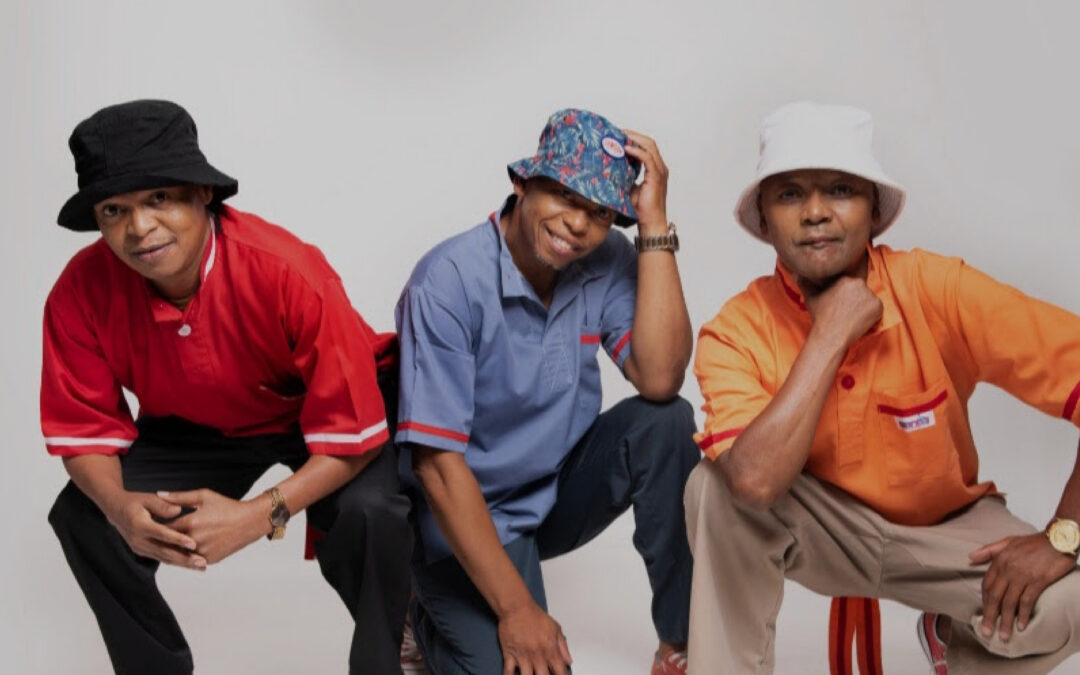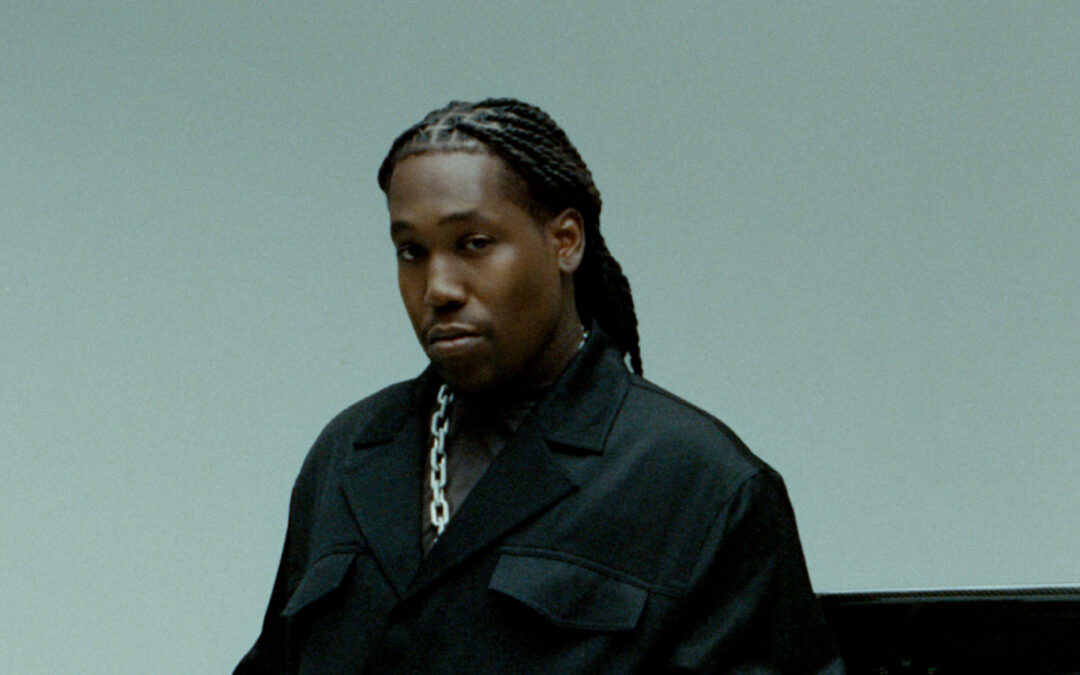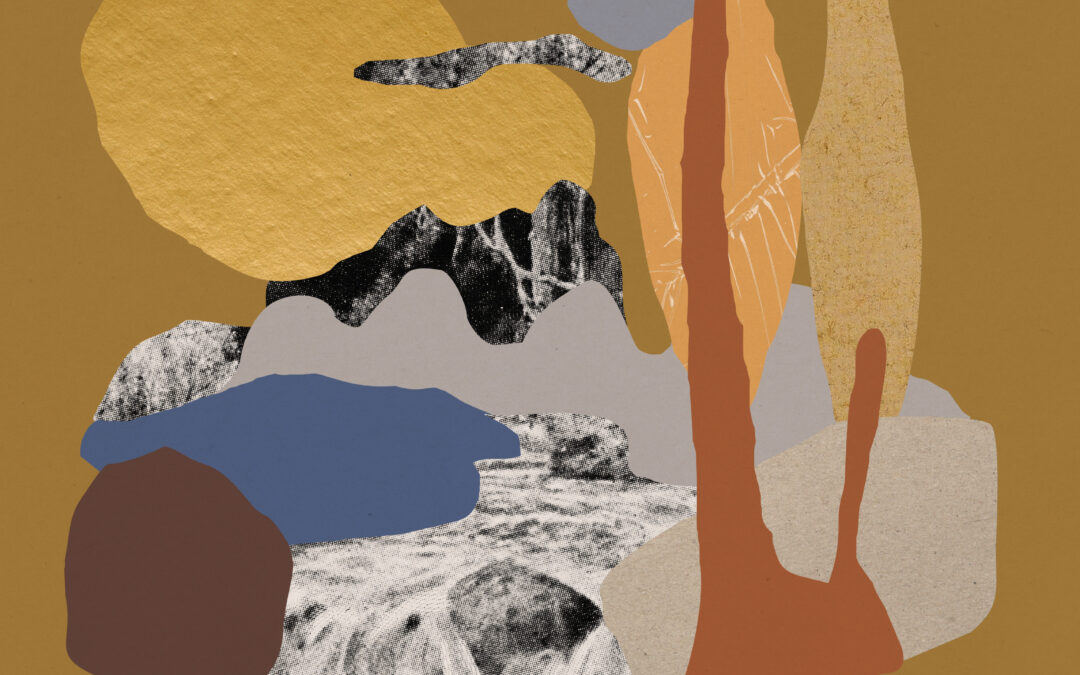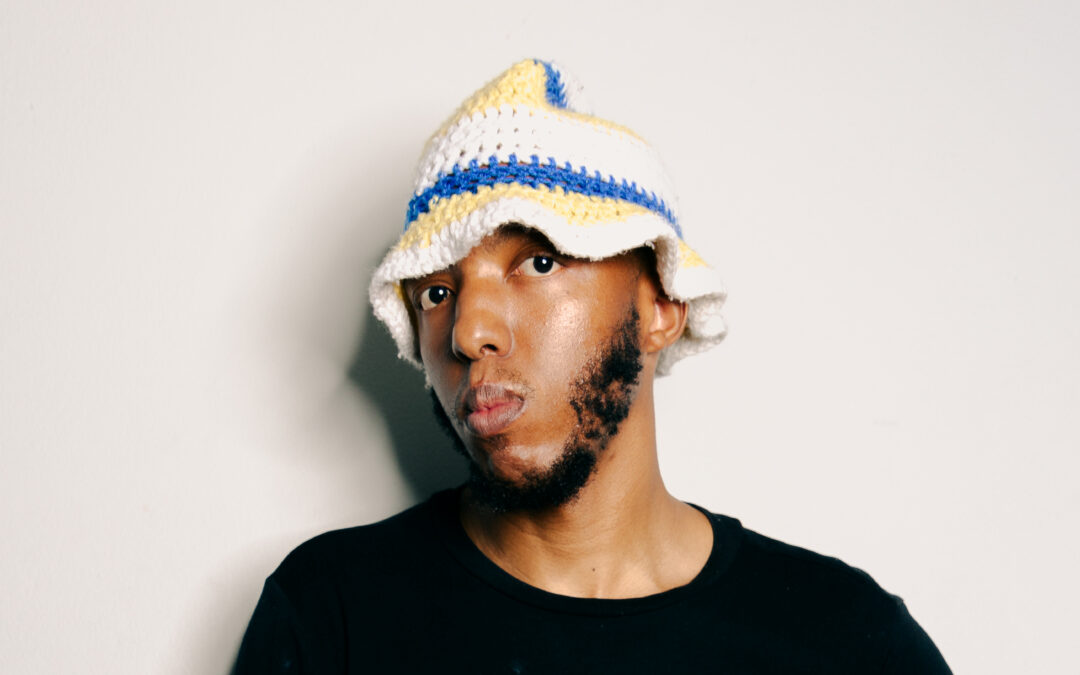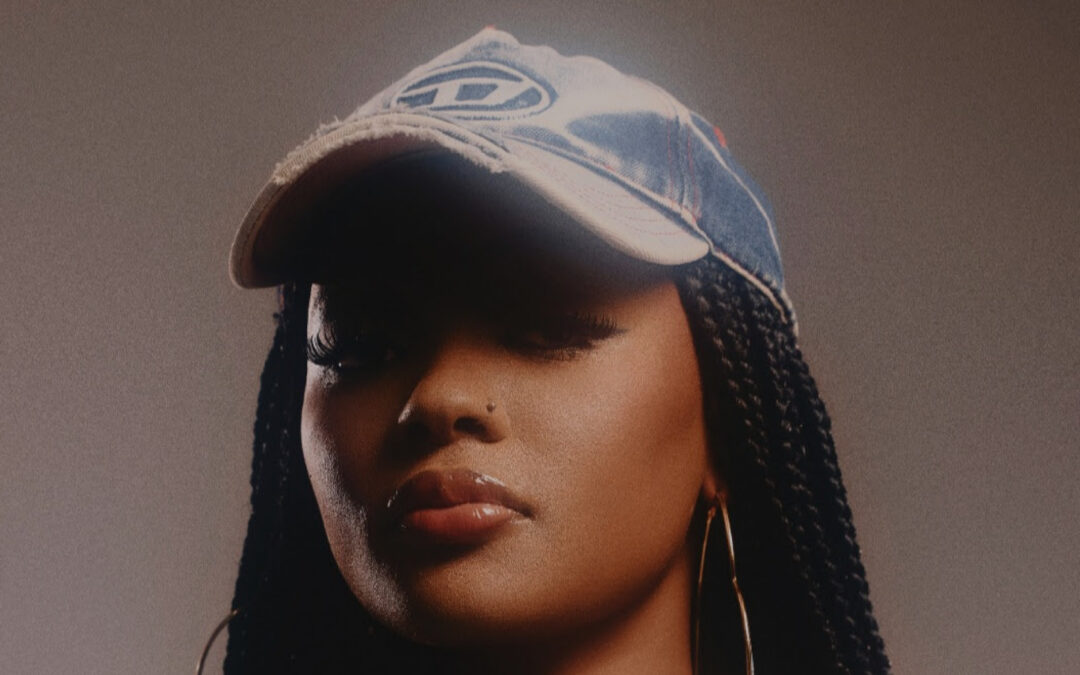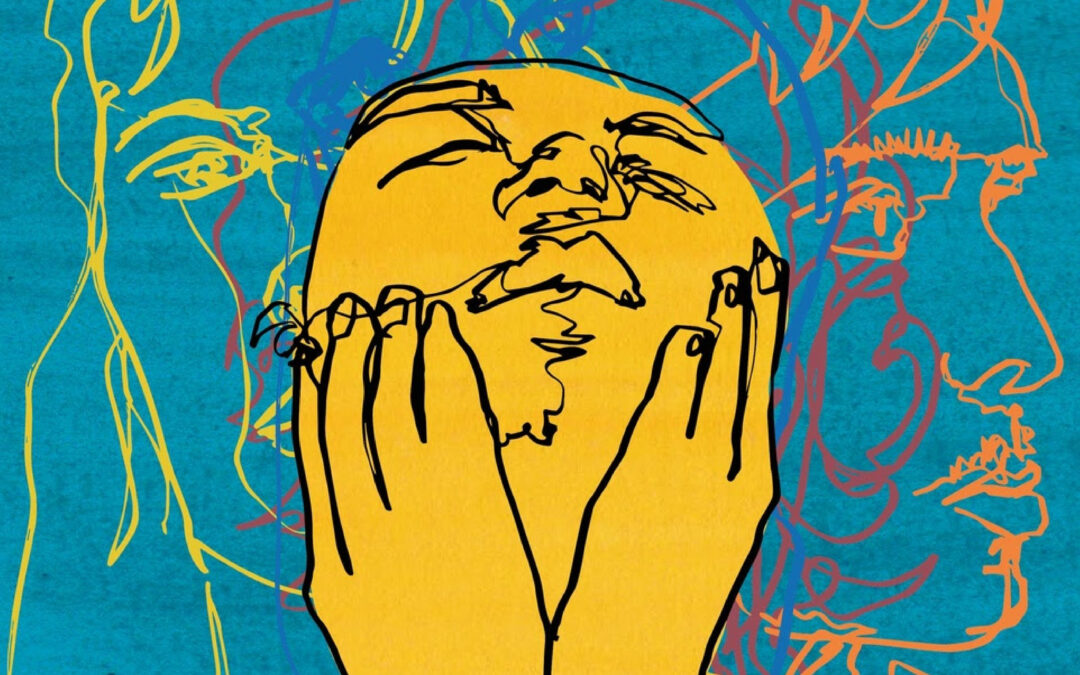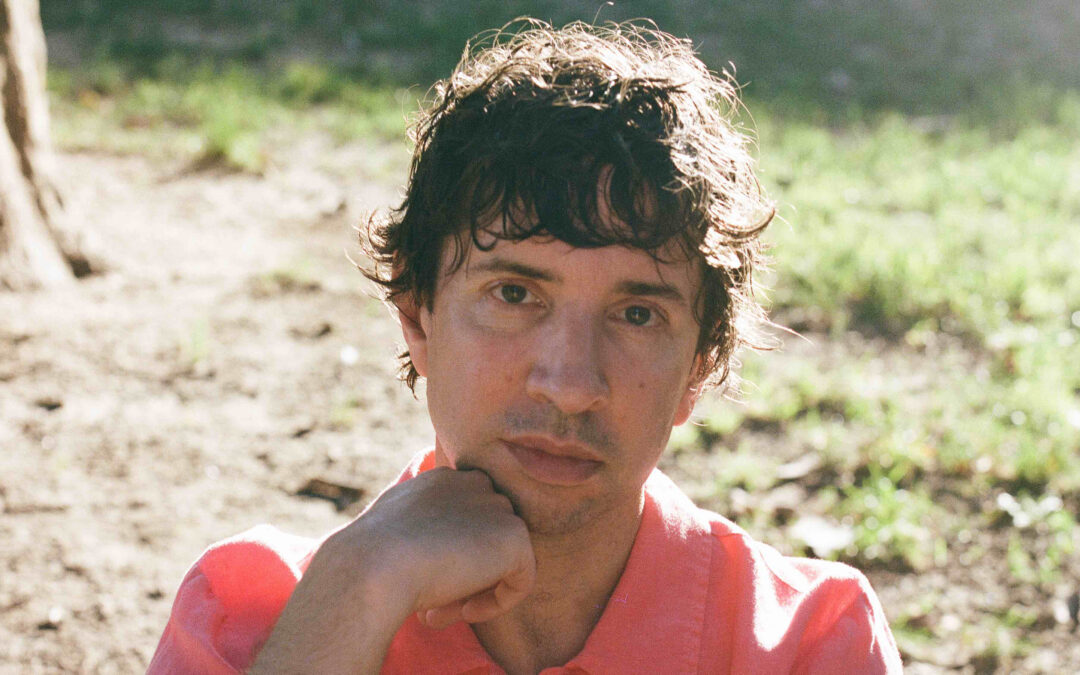Kyle Brinkmann AKA Das Kapital has been an inimitable force in South Africa’s electronic music scene for the last decade. He seemed to be everywhere, at all times – one moment anywhere at a show along the east-coast, suddenly back in Cape Town, and back out again (depending on the season), all while ensuring a weekly production was recorded for his 5fm show In Das We Trust – in which Kyle has steadily diversified the tastes of an eager local audience through a smörgåsbord of new sounds. In doing so he has inspired those after him to take up their mantle as artists, particularly through the establishment of his record label Do Work Records.
Kyle’s appearance on the DJ circuit was at a very particular moment in Cape Town, the early 2010’s, in which clubs like Assembly and Fiction were bursting at the seams with the city’s most curious and creative kids experiencing their coming of age; Black Label & entjie in hand. A viral remix also set the scene for Kyle – the infamous Skinny Love remix – which was the perfect distillation of that era; an ultra indie, tender sounding Bon Iver song tempered by hard electro beats. Alongside this, our country-wide festival scene was raging like wildfire; and being in my dirty-hippy phase I was hitting trance parties bi-weekly – and yet, there was Kyle too, playing off the mainstage, remedying the crowds with new flavours of electro as a salve for the bass-heavy psy-trance perfect to move your jaw to.
In this way, Kyle has always been moving, creating and curating – a connoisseur, if you will, of everything he focuses on. It’s in his nature to be consistent in his craft – and then, the pandemic hit. As we know, no one was untouched – and without delving too deeply into the uncertainty of lock-downs, work scarcity etc.- this global confinement set in motion a space in which DK could rest, reset and redirect his attention towards a variety of interests beyond music. Kyle’s repertoire now includes design and creative direction for Mad Dogs (yes, breathing new life into the heritage kid’s brand from the 90s), curatorship of The Stockroom Show with the team at Jack Lemkus and showcasing his enviable collection of sneakers online. Homie has style in everything he does; a wellspring of musical/cultural/fashion knowledge and an unquenchable thirst for pursuing his vision of dynamism.
This is our conversation from Downtown Ramen in Harrington St, where I got to ask an old friend some questions I’ve had throughout the years. It’s longer than usual, but absolutely worth the full read with many words of wisdom and anecdotes relevant for anyone pursuing a creative career in our beautiful country.
You are one of the most dynamic creatives that I know; as a DJ, producer, designer, creative director, collaborator and mentor; can you talk a bit about where your focus is currently?
The end and beginning of the year is always a strange time for me, because it does feel like the brakes get slammed hard in the creative industry – and then you’re basically waiting for everyone to put their foot on the gas again in the new year. I use this time to reflect on what I’ve done and look forward to the next projects I have lined up. At the moment, there’s some creative direction and projection that needs to happen for 6 – 8 months from now for Mad Dogs. The focus right now is how to keep shaping strategies to pivot and re-invigorate the brand. It’s an interesting dynamic of this historical, “big” brand essentially being run by a very small team – so looking at working with that as we focus on building our winter collection and putting a lot of ideas to the actual test.
I like looking 6 months back and 6 months forward, and sort of seeing myself in between that at any given point. I think that’s a good way for anyone doing multiple things to orient themselves – to be anchored right in the middle of everything that’s happening in order to maintain that outward awareness and view, at all times. I’m happy to see the entertainment industry get back on its feet. I’m DJing a lot more than I have in a while, and I am hoping to get back into the studio again – doing more vocal work, co-producing with people, and then hopefully writing and producing my own music again. That being said, collaboration is really where I am at right now, it’s what is giving me the most joy and motivation – and I’m a remixer at heart, as that is essentially a collaborative avenue. Woven into all of this is a lot more digital media – to be revealed…
Your decade-long career as a DJ under the name Das Kapital is interesting because I remember when we were in high school & you’d carry around your Macbook – even creating music then – and I think your career is the perfect expression of talent plus the actual grind and grit it takes to make dreams happen. Can you talk a bit about your early career, and the trajectory that led to joining 5FM?
I always saw myself getting into music one way or another. I wanted to write music, produce music and that idea shifted over the years – until the end of high school, which was the perfect time to be passionate about dance music. It wasn’t the first genre I was focused on – I actually thought I would be a hip-hop or scratch DJ – before being a house DJ. In 2010, fresh out of high school and doing a course on sound engineering to refine what I had taught myself, I found myself in a position where I was able to get a set at a club. Having a unique sound and a weird way of bringing stuff together stood out quite a bit – and it garnered the attention of some of the right people. I am thankful to have been in the right place at the right time, while also having the willingness to throw myself at something with everything I had. I was laser-focused on music, and willing to do the not-so coveted set hours – you know, being 19 and wanting this loud, wild experience and setting up your whole life to accommodate that. I was able to be consistent at that time too, which is hard for anyone at that age I think, but I knew I needed to keep being put on line-ups and show up with professionalism and drive to turn this thing into a long-term gig.
I had this myopic passion for music – and although that hasn’t changed – it’s definitely shifted in that now I’m more interested in creativity as a whole, and what that looks like for me – I guess, growing up and maturing. Looking at how I can take this creative space that I’ve accessed through music, and applying it to other pathways that I feel drawn to. And then the Skinny Love mix came out and it blew up – and it was totally unheard of for a song by a South African producer to hit a million streams across a bunch of blogs, which put eyes on me. I had been at UCT for two months, left, and then was contacted by UCT radio to do a show – and that was my segue into radio. I had no intention of being on radio, but it then progressed to internet radio at Assembly’s radio booth (RIP) and it rolled from there to 5fm now.
People used to ask how I got my start and if they could trace the steps – and I could tell people where to be and what to do, but with anyone’s path it can’t be replicated – and I’ve gone onto see so many aspiring young artists become my peers and have success on other mediums which I could never have had myself; we all have a way to move in our creative paths, and we can definitely learn from those before us, but ultimately it’s so unique for everyone. That’s what makes creative industries so compelling and diverse.
Owning a music label, Do Work Records, and producing music within the South African context – you have been a mentor to many emerging artists. What did Do Work Records arise from?
Do Work was built with my then manager Tim, at a time when it was kind of hard for me to find a home. I had this reputation in South Africa, but there weren’t really labels in the country doing what I needed them to do. There were major labels – but they weren’t going to give me the freedom I needed, which is literally a point on the road that every musical artist has to reckon with. I chose to be independent, and released EPs on Do Work; but then it really became a space about nurturing and producing other talent. I wanted to help springboard young South Africans, which was a great opportunity for me to further the idea of artistic direction; how to actualize other artists into their own vision and careers.
To be honest, the idea of a record label as the “middle man” is seeming more and more obsolete. Even with my own label which has been on hiatus for a while, I have this concern of it even being necessary. Sure, the support labels offer can be crucial, but there is such a risk of murkiness. It’s one thing to be a vehicle for artists, but with the way I see everything occurring digitally – it’s sort of touch and go on whether record labels are still able to fulfill anything meaningful for independent music.
This is our conversation from Downtown Ramen in Harrington St, where I got to ask an old friend some questions I’ve had throughout the years. It’s longer than usual, but absolutely worth the full read with many words of wisdom and anecdotes relevant for anyone pursuing a creative career in our beautiful country.
You are one of the most dynamic creatives that I know; as a DJ, producer, designer, creative director, collaborator and mentor; can you talk a bit about where your focus is currently?
The end and beginning of the year is always a strange time for me, because it does feel like the brakes get slammed hard in the creative industry – and then you’re basically waiting for everyone to put their foot on the gas again in the new year. I use this time to reflect on what I’ve done and look forward to the next projects I have lined up. At the moment, there’s some creative direction and projection that needs to happen for 6 – 8 months from now for Mad Dogs. The focus right now is how to keep shaping strategies to pivot and re-invigorate the brand. It’s an interesting dynamic of this historical, “big” brand essentially being run by a very small team – so looking at working with that as we focus on building our winter collection and putting a lot of ideas to the actual test.
I like looking 6 months back and 6 months forward, and sort of seeing myself in between that at any given point. I think that’s a good way for anyone doing multiple things to orient themselves – to be anchored right in the middle of everything that’s happening in order to maintain that outward awareness and view, at all times. I’m happy to see the entertainment industry get back on its feet. I’m DJing a lot more than I have in a while, and I am hoping to get back into the studio again – doing more vocal work, co-producing with people, and then hopefully writing and producing my own music again. That being said, collaboration is really where I am at right now, it’s what is giving me the most joy and motivation – and I’m a remixer at heart, as that is essentially a collaborative avenue. Woven into all of this is a lot more digital media – to be revealed…
Your decade-long career as a DJ under the name Das Kapital is interesting because I remember when we were in high school & you’d carry around your Macbook – even creating music then – and I think your career is the perfect expression of talent plus the actual grind and grit it takes to make dreams happen. Can you talk a bit about your early career, and the trajectory that led to joining 5FM?
I always saw myself getting into music one way or another. I wanted to write music, produce music and that idea shifted over the years – until the end of high school, which was the perfect time to be passionate about dance music. It wasn’t the first genre I was focused on – I actually thought I would be a hip-hop or scratch DJ – before being a house DJ. In 2010, fresh out of high school and doing a course on sound engineering to refine what I had taught myself, I found myself in a position where I was able to get a set at a club. Having a unique sound and a weird way of bringing stuff together stood out quite a bit – and it garnered the attention of some of the right people. I am thankful to have been in the right place at the right time, while also having the willingness to throw myself at something with everything I had. I was laser-focused on music, and willing to do the not-so coveted set hours – you know, being 19 and wanting this loud, wild experience and setting up your whole life to accommodate that. I was able to be consistent at that time too, which is hard for anyone at that age I think, but I knew I needed to keep being put on line-ups and show up with professionalism and drive to turn this thing into a long-term gig.
I had this myopic passion for music – and although that hasn’t changed – it’s definitely shifted in that now I’m more interested in creativity as a whole, and what that looks like for me – I guess, growing up and maturing. Looking at how I can take this creative space that I’ve accessed through music, and applying it to other pathways that I feel drawn to. And then the Skinny Love mix came out and it blew up – and it was totally unheard of for a song by a South African producer to hit a million streams across a bunch of blogs, which put eyes on me. I had been at UCT for two months, left, and then was contacted by UCT radio to do a show – and that was my segue into radio. I had no intention of being on radio, but it then progressed to internet radio at Assembly’s radio booth (RIP) and it rolled from there to 5fm now.
People used to ask how I got my start and if they could trace the steps – and I could tell people where to be and what to do, but with anyone’s path it can’t be replicated – and I’ve gone onto see so many aspiring young artists become my peers and have success on other mediums which I could never have had myself; we all have a way to move in our creative paths, and we can definitely learn from those before us, but ultimately it’s so unique for everyone. That’s what makes creative industries so compelling and diverse.
Owning a music label, Do Work Records, and producing music within the South African context – you have been a mentor to many emerging artists. What did Do Work Records arise from?
Do Work was built with my then manager Tim, at a time when it was kind of hard for me to find a home. I had this reputation in South Africa, but there weren’t really labels in the country doing what I needed them to do. There were major labels – but they weren’t going to give me the freedom I needed, which is literally a point on the road that every musical artist has to reckon with. I chose to be independent, and released EPs on Do Work; but then it really became a space about nurturing and producing other talent. I wanted to help springboard young South Africans, which was a great opportunity for me to further the idea of artistic direction; how to actualize other artists into their own vision and careers.
To be honest, the idea of a record label as the “middle man” is seeming more and more obsolete. Even with my own label which has been on hiatus for a while, I have this concern of it even being necessary. Sure, the support labels offer can be crucial, but there is such a risk of murkiness. It’s one thing to be a vehicle for artists, but with the way I see everything occurring digitally – it’s sort of touch and go on whether record labels are still able to fulfill anything meaningful for independent music.
Your personal style is very much a part of who you are; particularly regarding sneakers and streetwear. It’s one thing to be a participant in fashion, but it’s another to venture into design and creative direction. How did this come about for you?
I have always been passionate about clothing – but in the last three or four years, I have really gotten deep into fashion. I was really fortunate to be able to work with Puma for many years which allowed me to take pressure off needing to be on top of what was happening within style. I mean there was a time when I would be like “why is anyone spending money on Yeezy’s”, and here I am doing exactly that and understanding the whole scope of sneakers and streetwear in both its sartorial and cultural impact. I was very sports-goth for a long time with long black coats and then when the contract ended with Puma, I suddenly was re-looking at my style – thinking maybe it’s time to move on from Tumblr style black T-shirts with inverted crosses and All-Seeing-Eyes – that whole edge-lord thing.
Now, I can take ideas and styles I’ve always actually appreciated and turn them into something; I love using CAD to create pieces. I feel the same way as I feel about South African streetwear now in 2022, as I felt about the South African electronic scene in 2010 – there are so many bright, young talents around and established people who laid the foundations who are passionate enough and smart enough to recognize this moment.
I feel like so much of the older generation was centered around finding one career and sticking to it for 30 years – it’s amazing to see how much we can actually do and create if we allow ourselves the space to. How do you weave all these elements of who you are into what you do?
Balance. I get a lot of joy out of being busy and doing many things, but I have learned to balance work and play – doing things because it’s simply joyful and engaging. I look back at times when I was possibly my unhealthiest as a person, and see that my entire life revolved around my music career – and I was ticking all these boxes, but relatively unfulfilled internally. It has taken maturity and growth to see that diversifying what I do, engaging with other interests, having meaningful relationships are all critical for being happy and doing what I love. Success means nothing even if it’s not contributing to your overall life experience meaningfully.
What are you most proud of?
Growing up and being a better person today than I was yesterday in so many ways. I think being able to acknowledge how I have handled certain things in the last decade is really important for me – being so career-driven for a long time, the last few years have been about having better interpersonal relationships, treating the people closest to me with the care they deserve and being available to them. I don’t believe I am owed anything, but I do believe I have fought tooth and nail to be the version of myself that I am. I am proudest of pushing past a lot of things that I thought were unmoving; like who I am, and what the world is like, and holding these very strict and restrictive views on both of those. I definitely feel more open, and knowing I have a long way to go in being the healthiest I can be – but I am incredibly proud of how far I’ve come.

